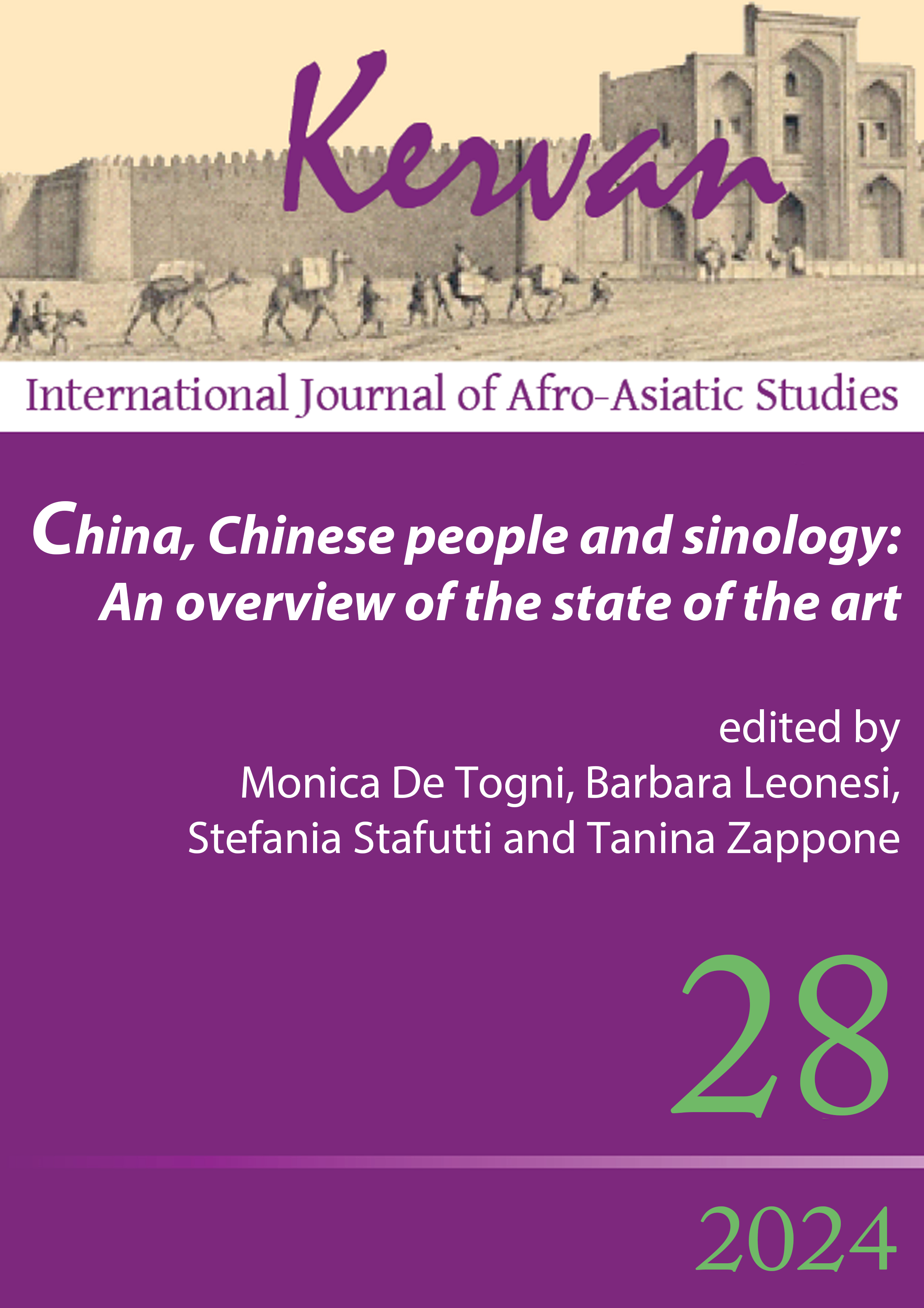Sex and irony in Zhang Dachun’s Bildungsroman Wo Meimei
DOI:
https://doi.org/10.13135/1825-263X/11604Abstract
Growing up in the juancun 眷村 (soldiers’ villages) communities of Taiwan during the 1980s, contemporary Taiwanese author Zhang Dachun 张大春 (b. 1957) appears to have embraced the postmodern ideas and techniques, drawing inspiration from writers like Roland Barthes and Umberto Eco in his literary work. Since the publication of his novel Da Shuohuangjia 大說謊家 (“The Big Liar,” 1989), Zhang Dachun earned the moniker “the big liar,” and his novels have been described as metafictional, employing a postmodern approach that playfully utilizes signs and symbols to convey meanings or “lies” (Peng 2009).
In 1993, under the pen name Datou Chun 大头春 (“Big-head Spring”), the author published a semi-autobiographical Bildungsroman (qingchun xiaoshuo 青春小說) titled Wo Meimei 我妹妹 (“My Kid Sister”), adopting a sarcastic teenage narrative voice. The novel depicts his own growth, as well as that of his sister, who is eight years younger, within the complex historical and political backdrop of 1980s Taiwan. Throughout the novel, there are numerous references to children’s sexual instincts and behaviors, often reinterpreted through a Freudian lens. These references are intertwined with the author’s personal experiences rooted in contemporary Taiwan’s reality and metafictional discussions on narrative meaning and strategies. The purpose of this paper, therefore, is to gather these references and shed light on Zhang Dachun’s reception of postmodernism while reconstructing his distinct “poetics of the lie.”
Downloads
Downloads
Published
Issue
Section
License
Gli autori che pubblicano su Kervan accettano le seguenti condizioni:
- Gli autori mantengono i diritti sulla loro opera e cedono alla rivista il diritto di prima pubblicazione dell'opera, contemporaneamente licenziata sotto una Licenza Creative Commons - Attribuzione che permette ad altri di condividere l'opera indicando la paternità intellettuale e la prima pubblicazione su questa rivista.
- Gli autori possono aderire ad altri accordi di licenza non esclusiva per la distribuzione della versione dell'opera pubblicata (es. depositarla in un archivio istituzionale o pubblicarla in una monografia), a patto di indicare che la prima pubblicazione è avvenuta su questa rivista.


 The articles that have appeared on Kervan since 2016 are rated as Class A in the system of National Scientific Qualification (ASN, disciplines 10/N1 and 10/N3).
The articles that have appeared on Kervan since 2016 are rated as Class A in the system of National Scientific Qualification (ASN, disciplines 10/N1 and 10/N3). The journal has been approved for inclusion in DOAJ. The DOAJ listing of the journal is available at
The journal has been approved for inclusion in DOAJ. The DOAJ listing of the journal is available at  The journal has been approved for inclusion in ERIH PLUS. The ERIH PLUS listing of the journal is available at
The journal has been approved for inclusion in ERIH PLUS. The ERIH PLUS listing of the journal is available at  Kervan was just accepted for indexing in SCOPUS. This important milestone ensures that articles published in Kervan are easily found when searching for library, archives and Information science and it enables Kervan authors to keep track of how often their article has been cited by others.
Kervan was just accepted for indexing in SCOPUS. This important milestone ensures that articles published in Kervan are easily found when searching for library, archives and Information science and it enables Kervan authors to keep track of how often their article has been cited by others.

